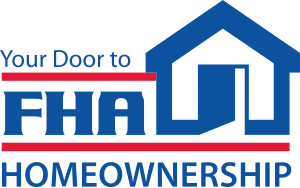The Federal Housing Administration provides mortgage insurance on loans made by FHA-approved lenders to single and multi-family homes in the United States. In other words, an FHA loan is a loan insured against default by the FHA. The FHA is the largest insurer of residential mortgages in he world. This insurance protects lenders against losses that result from defaults on home mortgages. Here are just a few facts about the FHA loans: - To be eligible on the FHA loan you must have at least two years of steady employment with the same or increasing income, minimum credit score of 620 in the past two years, at least a two year old bankruptcy and three year old foreclosure with perfect credit since and your new mortgage payment should be approximately 30 percent on of your gross income.
- Through this loan, the FHA promises to pay lenders if the borrower defaults on their loan. The home buyers who use the FHA loan pay an upfront mortgage insurance premium of 1 percent and a modest ongoing fee with each monthly payment. If the borrower defaults, then the FHA uses the collected insurance premiums to pay off the mortgage.
- There is a price limit to these loans. As of Jan. 1, 2009, the maximum mortgage limit in high-cost areas is 115 percent of local median prices, not to exceed $625,500. The maximum conforming loan limit is $417,000 for a single-family residences nationwide. These rates do depend on the area you’re looking in.
- As of August 2010, the U.S. Department of Housing and Urban Development has the authority to increase Annual Mortgage Insurance Premiums. This means that the HUD can increase the amount of Annual Mortgage Insurance Premiums depending on how much your down payment will be.
- If you’re buying your first home, the down payment with the FHA loan can be as low as 3.5 percent of the purchase price, and other fees that can be included in the loan.
- You must be able to pay the closing costs, usually 2-3 percent of the price of the home. The costs can included homeowner’s insurance, attorney’s fees, title search fees and title insurance, Private Mortgage Insurance, the loan origination fee ad a fee that goes into the FHA insurance fund.
- If you’re interested in a fixer upper, there is an FHA loan that allows your to buy and fix the place up, all in one loan. There is also a loan available if you want to remodel or repair your own home that will refinance what you owe and add the cost of repairs.
- If you’re over the age of 62 and own your own home with a low loan balance, the FHA Reverse Mortgage would be able to convert a portion of your equity into cash.
- The FHA Energy Efficient Mortgage allows you to include the costs for energy improvement of your home. Make sure to double check on your state’s requirements and regulations.
- There is financing available for mobile homes and factory built housing. There is a loan product for those who own the land that the home is on and another for mobile homes that are, or will be, located in mobile home parks.
FHA loans are a great way to use the Federal Housing Administration to guarantee that your housing loans will be payed back.
 Image by bds4us via FlickrLibrary Subject Index
Image by bds4us via FlickrLibrary Subject Index

 Mortgage markets worsened terribly last week. Amid more reports of an improving economy and fears of pending inflation, mortgage rates skyrocketed to their highest levels since April 2010.
Mortgage markets worsened terribly last week. Amid more reports of an improving economy and fears of pending inflation, mortgage rates skyrocketed to their highest levels since April 2010. 





